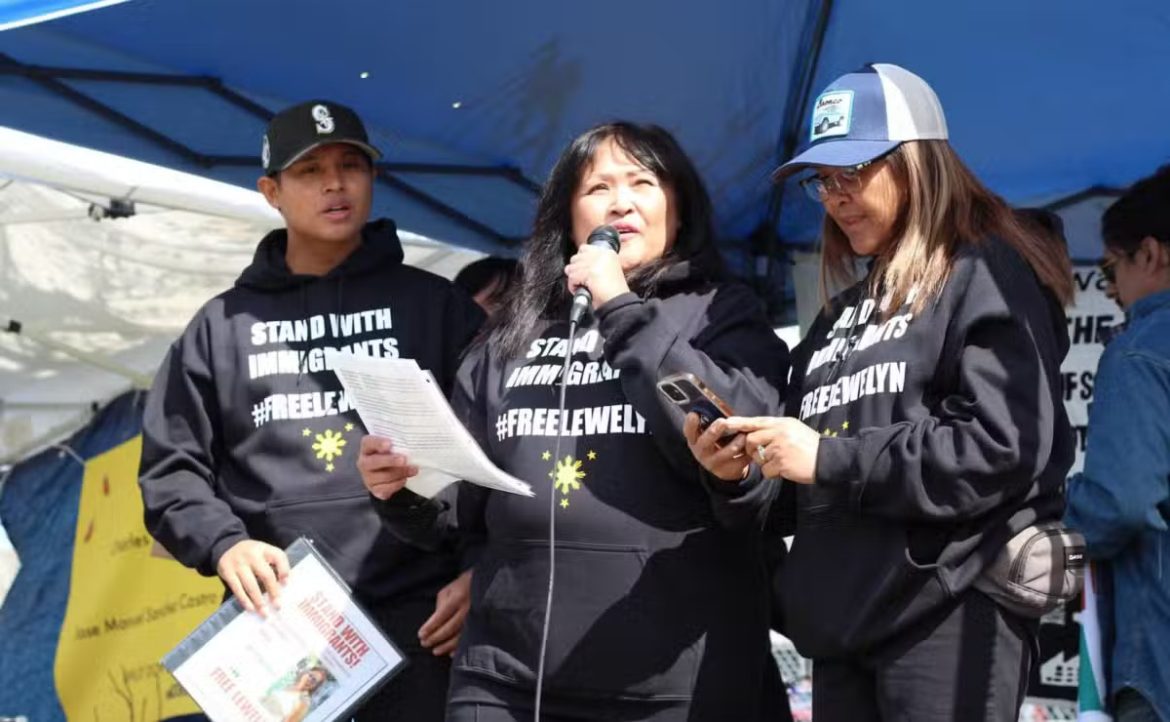Filipino American migrant advocacy groups are criticizing the Philippine government for its perceived lack of action concerning the detention of Filipino green card holders by U.S. Immigration and Customs Enforcement (ICE).
These groups raised concerns during a virtual press conference in New York Monday night, where detainees and advocates presented testimonies detailing the challenges faced by the community.
Since the return of President Donald Trump to office two months ago, reports indicate an increase in the arrests of Filipino migrants, irrespective of their immigration status.
Among the detained is Lewelyn Dixon, a 64-year-old Filipino green card holder and lab technician at the University of Washington, who has lived in the U.S. for 50 years.
Dixon was arrested in February at Seattle airport after returning from a trip to the Philippines.
Dixon testified that four other Filipino green card holders remain detained at the Northwest Detention Center in Tacoma, Washington, with her next hearing set for July.
Her attorney, Benjamin Osorio, suggested that U.S. Customs and Border Protection flagged her for a previous conviction for embezzlement, despite having resolved the case over two decades ago.
Fil-Am lawyer Nick Caraquel clarified that only U.S. citizens have the right to enter the country, reflecting the Trump administration’s strict policy on immigrants with criminal records.
Dixon’s case has rallied community supporters, who joined a protest in Seattle calling for her and another detainee’s release.
Another detainee, 58-year-old Alma Bowman, was detained by ICE during a check-in on March 26 and moved to the Stewart Detention Center in Georgia.
Bowman, claiming U.S. citizenship through her American father, previously raised alarms about non-consensual medical procedures on migrant women during her earlier detention.
A 2020 report confirmed Bowman’s U.S. citizenship, raising questions about her continued detention and rights deprivation.
The Tanggol Migrante Network is demanding accountability from the Philippine government in response to these incidents.
Additionally, nursing assistants Dhenmark Francisco, 28, and Jovi Esperanza, 31, faced arrest and deportation after accusations of assaulting a patient in New Jersey, despite community support and legal efforts.
Esperanza has since been deported to the Philippines, expressing dissatisfaction with the lack of consular support during his legal battles.
The Philippine Consulate in New York recently reversed its promise to provide legal aid, leaving Francisco and Esperanza with substantial legal expenses.
The Philippine Embassy contends that it has extended appropriate consular assistance to ensure detained nationals’ rights and wellbeing.
Migrant advocates argue that the Department of Foreign Affairs has defended its inaction by claiming non-intervention in documented rights violations against Filipino migrants.
The detention situations have placed many Filipinos in vulnerable positions, struggling with healthcare access and legal status uncertainties.
Family members and community organizers continue to advocate for action, emphasizing the need for the Philippine government to fulfill its responsibilities.
Organizers like Julie Jamora of the Malaya Movement affirm their commitment to self-advocacy and spreading awareness about the plight of detained Filipinos.

